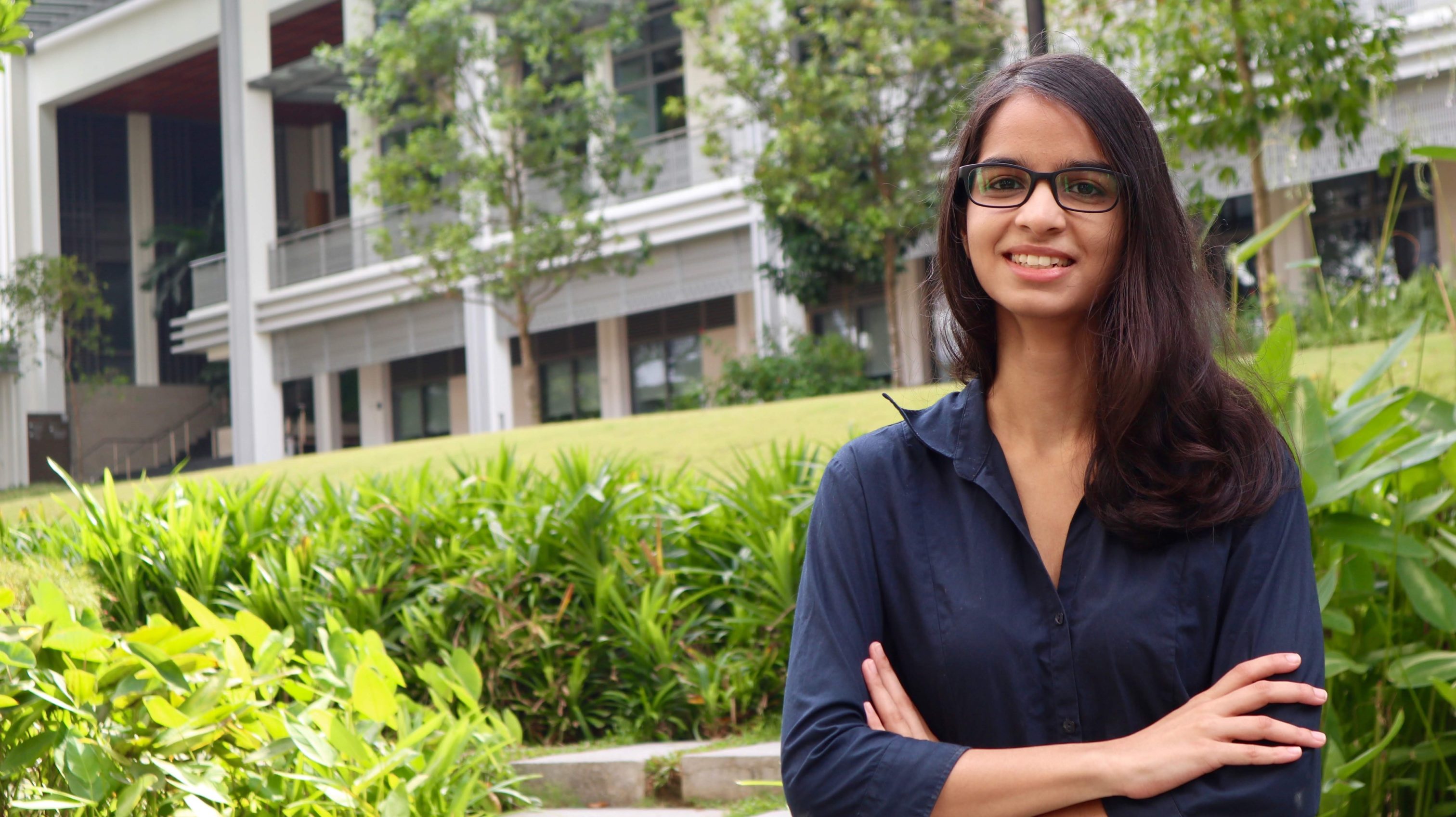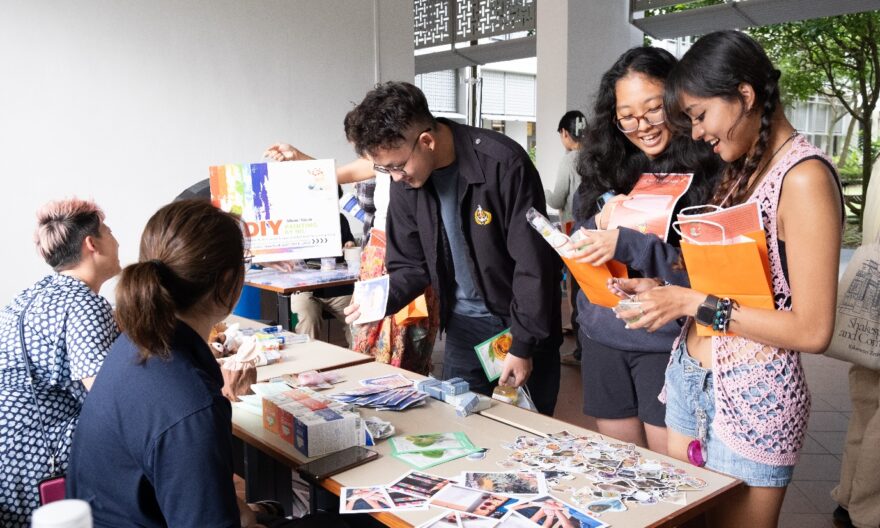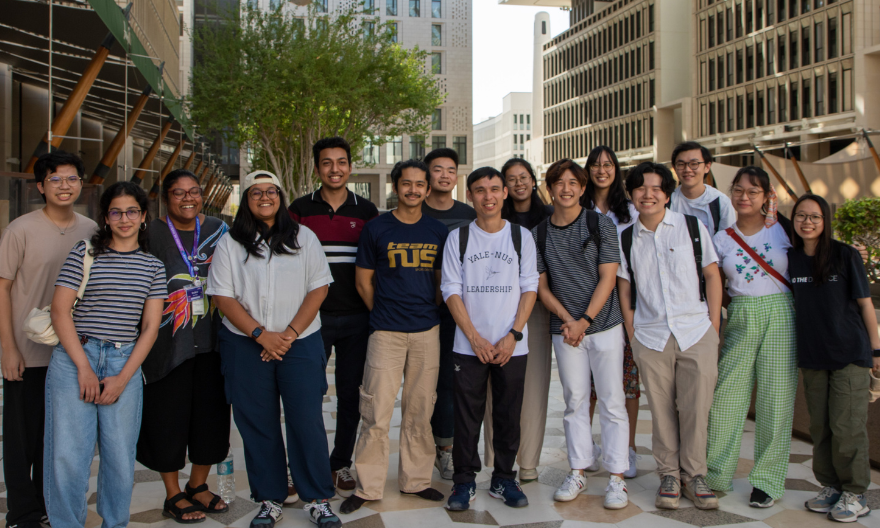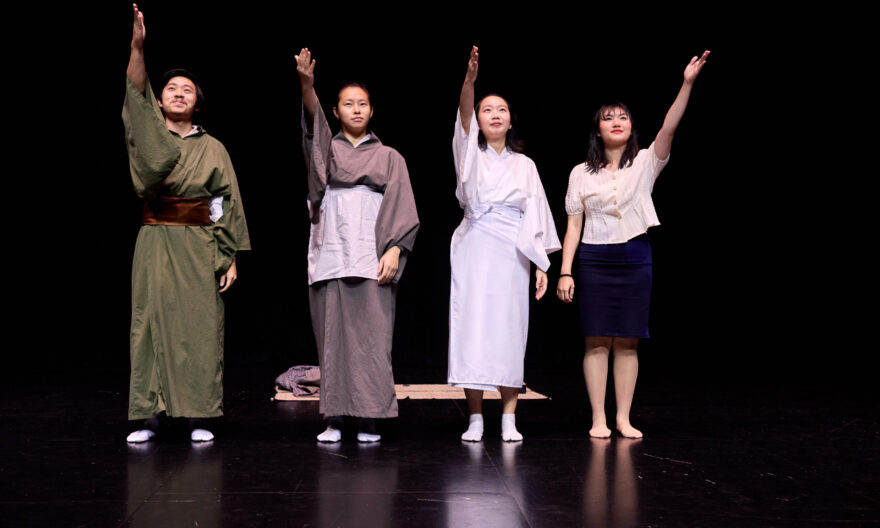Yale-NUS student to pursue Duke-NUS MD-PhD programme
 Anjali Kannangath (Class of 2020) will be pursuing a MD-PhD at Duke-NUS. Image provided by Anjali.
Anjali Kannangath (Class of 2020) will be pursuing a MD-PhD at Duke-NUS. Image provided by Anjali.
For Anjali Kannangath (Class of 2020), conducting research at Yale-NUS was “the most critical” in preparing her for the MD-PhD track at Duke-NUS Medical School (Duke-NUS), a seven-year programme which combines medical education with research training to develop clinician-scientists who interface between medicine and science. She is the first Yale-NUS student to be admitted to this programme.
Anjali aims to bridge her interests in exploring scientific questions and improving patients’ well-being as a clinician-scientist. Specifically, she intends to focus on research and treatments for neurodegeneration, a process where neurons lose their structures or functions. She hopes that Duke-NUS would be “an especially natural transition” from the College as both schools share similar innovative teaching methods and learning outcomes, such as developing critical thinking, problem-solving, and an entrepreneurial mindset in students. For instance, Duke-NUS has developed ‘TeamLEAD’ which uses technology to give students the opportunity to learn from readings and supplemental materials before class, therefore promoting more productive classroom sessions.
Anjali began conducting research when she worked with Senior Lecturer of Science Dr Philip Johns in her first year at the College. She did fieldwork in Brunei and Cambodia, where she collected specimens of stalk-eyed flies and ran experiments. From there, Anjali learned about behavioural experiments and basic molecular biology techniques.
In the summer of her sophomore year, Anjali worked with Assistant Professor of Social Sciences (Psychology) Christopher Asplund on a project on offset analgesia. In simple terms, offset analgesia is described as a form of pain inhibition brought about by thermal stimulation. Anjali and Asst Prof Asplund found that timing and location manipulations of thermal stimuli can be used to offset pain. Despite no prior research in this field, Anjali gained experience in drafting manuscripts, human subject design, and data analysis and visualisation.
For her capstone project, Anjali selected another topic on a rare brain tumour called anaplastic astrocytoma that she had no prior exposure to fulfil her intellectual curiosity and interest in neuroscience. While progress was challenging at times, her capstone advisor Assistant Professor of Science (Computational Biology) Nathan Harmston was very engaging and supportive. Through his mentorship, she gained more confidence in her coding skills, learned to navigate new tools and improved her scientific writing.
The College’s Common Curriculum has also pushed her out of her academic comfort zone. Prior to entering Yale-NUS, Anjali had never taken a social science class and had barely finished a year of literature in high school. This did not hinder her learning process. She said, “Modern Social Thought (MST) was undoubtedly the best Common Curriculum course I took and it was the first course that really pushed me to critically examine intersections between the sciences and the humanities.”
Apart from honing her public speaking and writing skills in College, Anjali is also more adept now in making interdisciplinary connections and “rigorously evaluating the logic of underlying arguments”. She credits these skills as “transferable to almost every field of specialisation”.
For her upcoming studies, Anjali has already identified a topic she would like to focus on solving. She noted that many pharmacological treatments fail in human trials despite showing promising results in animal models. Hence, understanding human psychology thoroughly, she believes, is crucial to developing better models of neurodegenerative diseases.
“As a clinician-scientist, I sincerely strive to bridge the cross-talk between the lab and the clinic, and hope that patient interactions will inform research questions,” she said.





